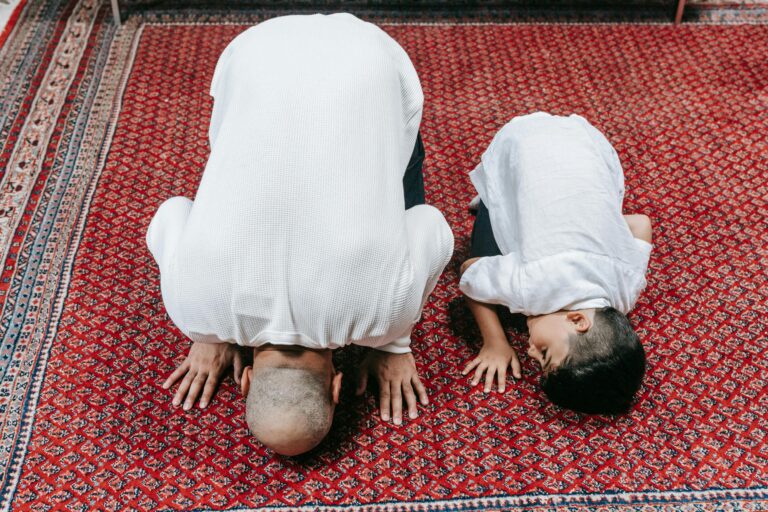If you have a topic or question you would like to discuss, please feel free to reach out. I would be delighted to hear from you: salam@abasnur.com

You Ask for Halal Meat, But Is Your Money Halal?
Imagine meticulously checking every ingredient on your plate, ensuring your food is halal, only to realise the money that bought it carries the stain of doubt or sin. For many Muslims, the pursuit of halal is a sacred act, a commitment to purity in what we consume. Yet, while we interrogate shopkeepers and scrutinise meat suppliers, how often do we pause to question the source of our wealth? This silent contradiction – seeking halal sustenance while earning through questionable or forbidden means – is a spiritual crisis that quietly erodes our connection with the Creator – Allah. In this reflection, we’ll explore why halal extends far beyond food to encompass every facet of our lives, uncover the profound impact of impure earnings on our souls, and offer practical steps to align our wealth with our worship. Let’s embark on this journey to purify not just our plates, but our hearts and livelihoods, for the sake of Allah’s pleasure.
Bismillah;

Many Muslims go to great lengths to ensure their food is halal, diligently avoiding anything doubtful. Yet, in our zeal for permissible sustenance, we often neglect a far weightier matter: the purity of our earnings. This oversight is not merely a practical misstep – it’s a spiritual disconnect that undermines the very essence of a halal life. The Prophet Mohamed (peace and blessings be upon him) taught that what we consume shapes not only our bodies but our souls. He (PBUH) warned that a body nourished by haram will be barred from the gates of Paradise. If the food on our table – however meticulously halal in its preparation – is purchased with money earned through interest, deceit, fraud, unethical practices, or impermissible industries, its spiritual purity is compromised.
Consider the man described by the Prophet (peace and blessings be upon him), who raises his hands in fervent supplication, yet his food, drink, and clothing are tainted by haram. “How can his dua be answered?” the Prophet (PBUH) asked. This poignant question echoes through our lives today. Many of us wonder why our prayers feel unanswered, why barakah eludes our homes, or why our hearts feel distant from Allah. Too often, the answer lies in the impurity of our income – a root cause we overlook at our peril.
Our deen – Islam – calls us to a holistic halal existence, one that transcends selective piety. Halal is not confined to the meat we eat; it encompasses our wealth, our words, our time, and our dealings. Just as we would never knowingly feed our children pork, we must guard against nourishing them with earnings tainted by sin. A life of true devotion demands that we align every aspect of our existence with Allah’s commands, for partial obedience risks hollowing out the spiritual rewards of our worship.
So, how do we purify our livelihoods and restore barakah to our lives? Bi idhnillah, here are thoughtful, practical steps to guide us:
Audit your income with sincerity. Take time to reflect honestly on your sources of wealth. Are you earning through means that align with Islamic principles? If your income stems from interest, unethical business, or impermissible industries, acknowledge it without self-deception. This self-accountability is the first step towards “change”.
Seek repentance and resolve to change. If you discover doubtful or haram earnings, turn to Allah in sincere repentance. Commit to transitioning to permissible sources, even if it requires sacrifice or patience. Trust that Allah’s promise is true: whoever abandons something for His sake will find it replaced with something better.
Live within your means. Embrace simplicity and contentment, resisting the temptation to chase wealth through questionable avenues. A modest life sustained by halal earnings carries more barakah than abundance tainted by sin.
Give charity to purify your wealth. Regularly give sadaqah, not only to support those in need but to cleanse your wealth and invite Allah’s blessings. Charity softens the heart and strengthens our reliance on Him.
Make dua for halal rizq. Persistently ask Allah for pure, blessed provision. Supplicate with conviction, knowing that He is Al-Razzaq, the Provider, who opens doors we cannot imagine.
Seek knowledge and guidance. Educate yourself about Islamic finance and permissible business practices. If unsure about your income’s permissibility, consult a trusted scholar or advisor. Knowledge empowers us to make informed, God conscious choices.
Cultivate taqwa in all dealings. Let God consciousness guide your transactions. Be honest, fair, and ethical in your work, whether as an employee, employer, or entrepreneur. Integrity in our livelihoods reflects our commitment to Allah.
The truth is stark yet liberating: halal food purchased with haram money loses its spiritual purity. To deceive ourselves into believing otherwise is to risk our souls’ well-being. By purifying our earnings, we not only safeguard our akhirah but also invite barakah into our lives – peace, contentment, and closeness to Allah that no wealth can buy.
Let us act before complacency takes root. Reflect on your income today, seek Allah’s forgiveness, and take deliberate steps towards a fully halal life. Your soul, your worship, and your legacy depend on it. May Allah guide us to purify our hearts, our wealth, and our intentions, and may He make our rizq a means of drawing closer to Him. Ameen.
Living a truly halal life is a profound act of devotion, a testament to our love for Allah and our trust in His provision. By ensuring our earnings are as pure as the food we eat, we build lives rich in barakah and spiritual fulfilment. What’s one step you can take today to align your wealth with your faith? The journey to a halal livelihood begins with a single, sincere step - will you take it today?


